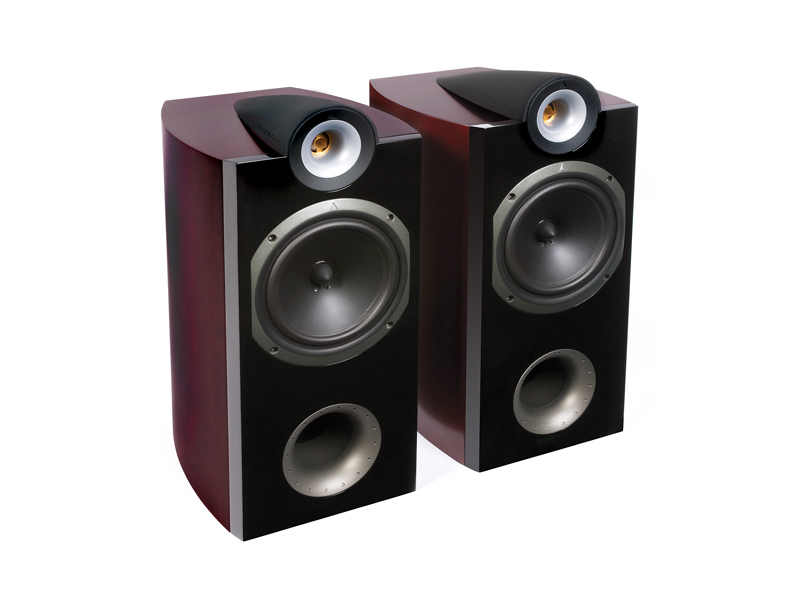TechRadar Verdict
Mostly decent balance with lively dynamics, but top end was widely criticised
Pros
- +
Lively, punchy sound
- +
A largely even balance
Cons
- -
Top end is too bright and edgy
- -
Lacks low bass weight
Why you can trust TechRadar
Triangle's Trio is also one of the largest – and the flashiest standmount speakers, with its curved cabinetwork, the multi-hued part-external horn-loaded tweeter that protrudes above the top panel, and the shiny flared front port.
The Trio is the smallest of three stereo pairs that make up Triangle's mid-market Genese range, designed to take some of features introduced in the upmarket Magellan models, make them available at lower cost and bridge the gap between the Magellans and the vinyl-covered budget Esprit EX models.
A generous-sized two-way standmount, based on a 160-millimetre bass/mid driver, this Trio has much in common with Triangle's more costly Magellan Duetto SW2.
While the deep front panel is high gloss black, the rest of the enclosure is attractively finished in a real wood veneer, stained to give a mahogany effect. The curved sides are fatter in the middle than at the front and back, so internal reflections are well distributed, standing wave focus is diluted and increasing stiffness.
The driver line-up consists of a 160mm bass/mid driver with a 118mm flared paper cone, a fixed 'bullet' pole-piece extension and a high excursion rubber roll surround. This crosses over to a horn-loaded titanium dome tweeter mounted high up and half out of the enclosure proper, thanks to a semi-circular rubber-covered bulge protruding from the top surface. A shiny grey moulded and flared port is mounted on the front below the main driver, while signals are fed via twin terminal pairs on the rear.
Sound quality
Although the reactions of different listeners varied somewhat, there was general criticism of a bright and rather brittle top end, as well as some lack of genuine bottom-end weight and welly. However, the bass proper attracted praise for its crispness and liveliness, delivering good pace and impetus, while the lower midband sounds appropriately warm and full.
The high and wide stereo soundstage was particularly effective when reproducing our choral extract, though image depth seemed rather limited.
The Trio delivers lively and entertaining dynamics with decent leading edge definition. The presence zone is just slightly laid back and manages to deliver good vocal detail without becoming aggressive.
Boxy effects are generally well-controlled, though a mild nasality is evident. Yet the top-end emphasis remains a consistent source of criticism: one listener complained that its innately brittle quality tended to harden up as the volume was increased and this was likely to become fatiguing over time.
The paradox of the Trio is that it costs half the price of Triangle's Magellan Duetto SW2 and measures significantly better, yet it doesn't come close on sound quality. It's by no means a bad loudspeaker, but neither is it a particularly exciting or interesting one and that bright top end remains a significant flaw.
Follow TechRadar Reviews on Twitter: http://twitter.com/techradarreview
Most Popular









